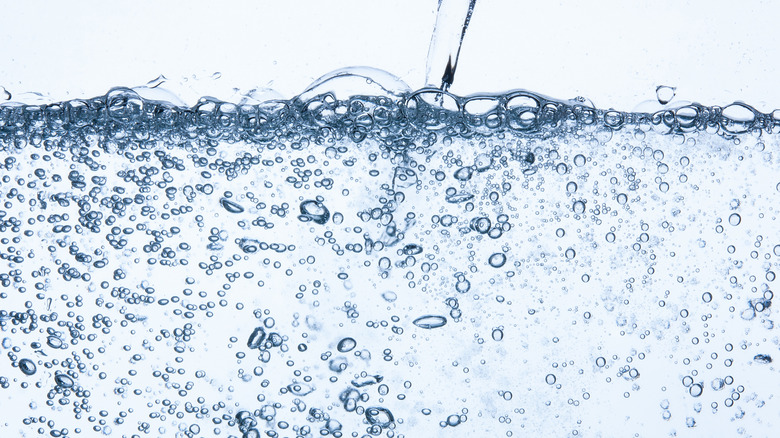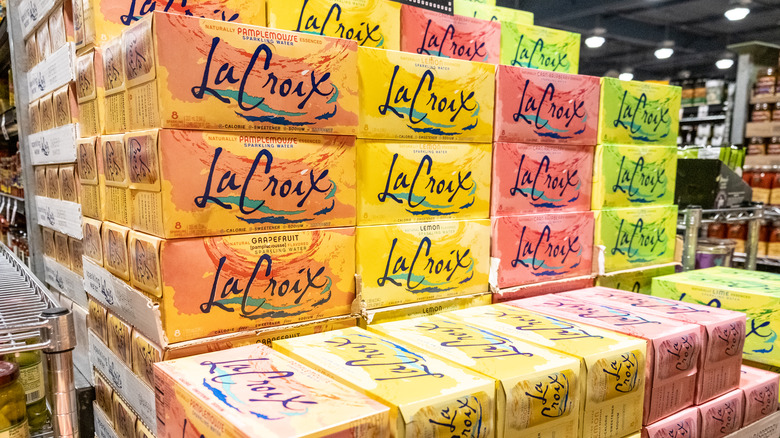Is Sparkling Water Bad For Your Teeth?
In the U.S., one of the most common New Year's resolutions — cited by 39% of survey respondents according to Yahoo! News — is to improve diet. For many, that will include cutting down or cutting out their consumption of sugary sodas. But the soda void will need to be filled, and an obvious contender is sparkling water.
Gary Hemphill, managing director of research at consulting and research company Beverage Marketing, told USA Today, "Americans still have a love affair with bubbles and carbonation, but they're choosing other things because of health and wellness. 2017 [was] the 13th consecutive decline in the volume of carbonated soft drinks. We think sparkling [water] has a very bright future." So do sparkling water markets worldwide, which were valued at 29.71B USD in 2020 and are projected to grow steadily over the coming years (via Grand View Research).
It's true that sparkling water normally contains far less sugar than its diet-wrecking cousin, soda pop. And we all know by now that a steady stream of soda can eventually damage your teeth (via Healthline). But is sparkling water also bad for your teeth?
Sparkling water is slightly acidic
Carbonated water is made up of two ingredients: water and carbon dioxide. When you drink it, a chemical reaction in the mouth turns the CO2 into carbonic acid, which is what gives sparkling water that zingy, effervescent feel (via Today). This chemical reaction also has another effect; it makes the water more acidic.
Pure, plain water has a neutral pH of 7, meaning that it's neither acidic nor basic. (Remember high school chemistry? Anything below 7 on the pH scale is acidic; above 7 is basic.) Sparkling water on average has a pH of around 4.5, so it's slightly acidic but less so than orange juice (pH of 3.70) or Coca-Cola (pH of 2.52) (via New Albany Smiles).
Since it's mildly acidic, sparkling water does have the potential to wear away at tooth enamel — if you drink it often enough. Dr. André Ritter, chair of the department of operative dentistry at the University of North Carolina School of Dentistry, told Today, "If you're sipping and keeping that acidic drink in your mouth and swishing around every time you sip, and if you do this often, multiple times a day, then that's probably the most dangerous kind of behavior when it comes to tooth wear."
If you're an all-day type of sipper, plain water is probably your best bet. But the occasional sparkling water isn't likely to do any harm, and it's still far better than soda.


